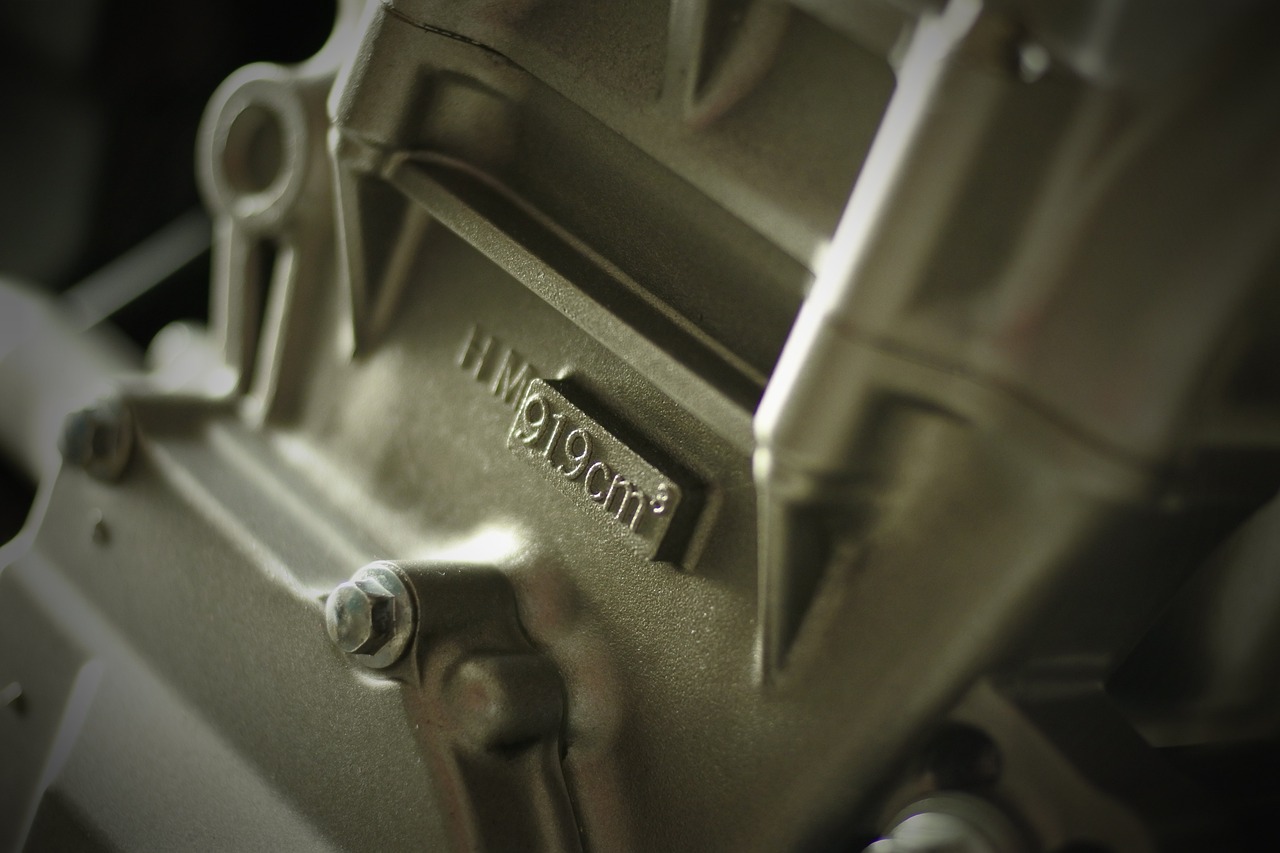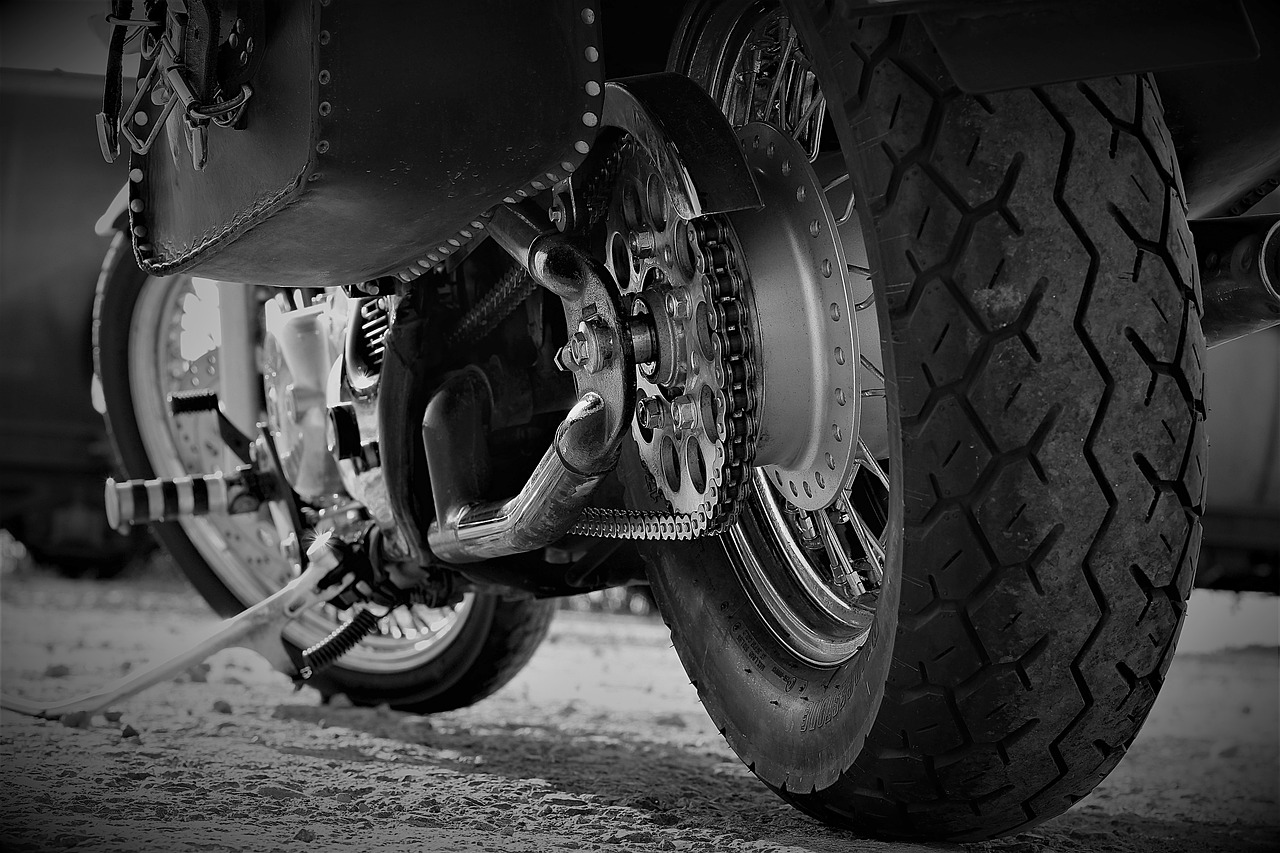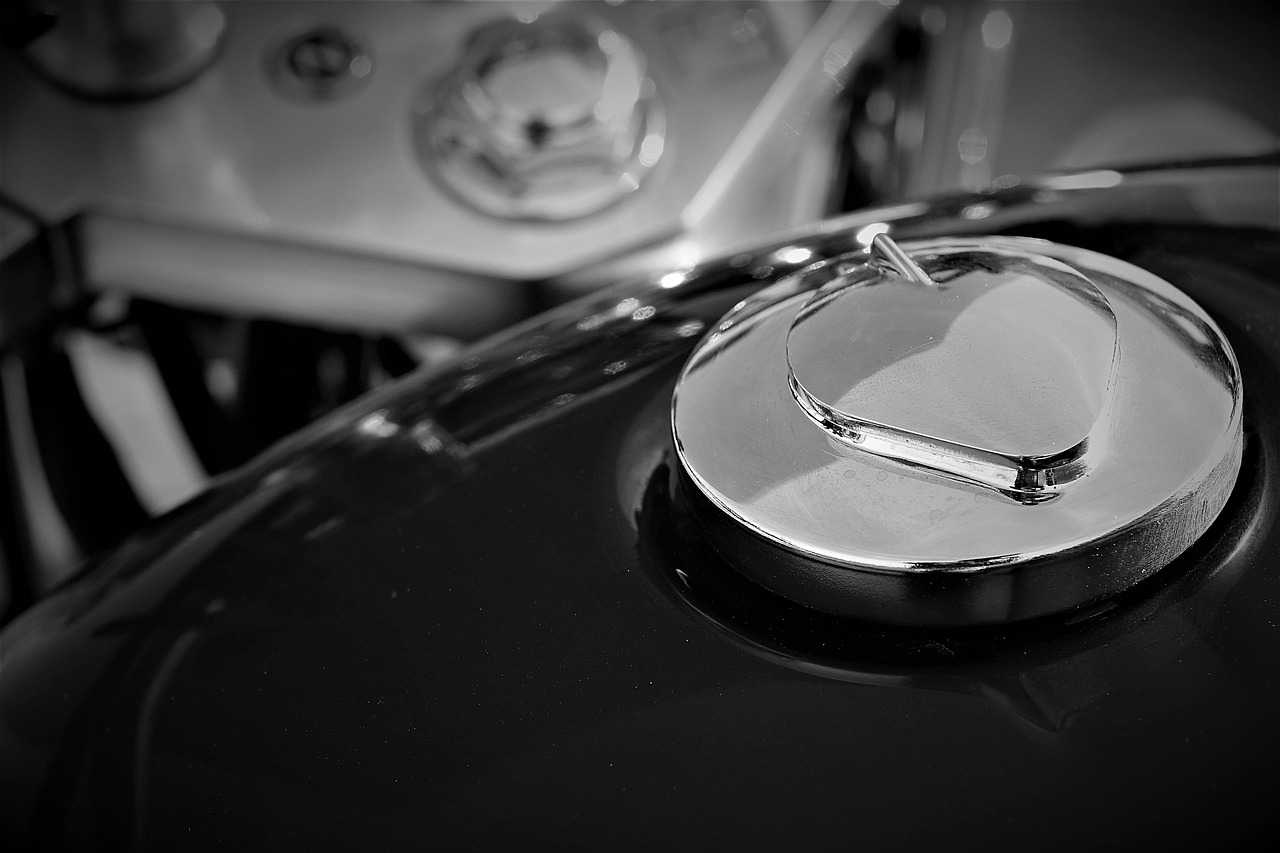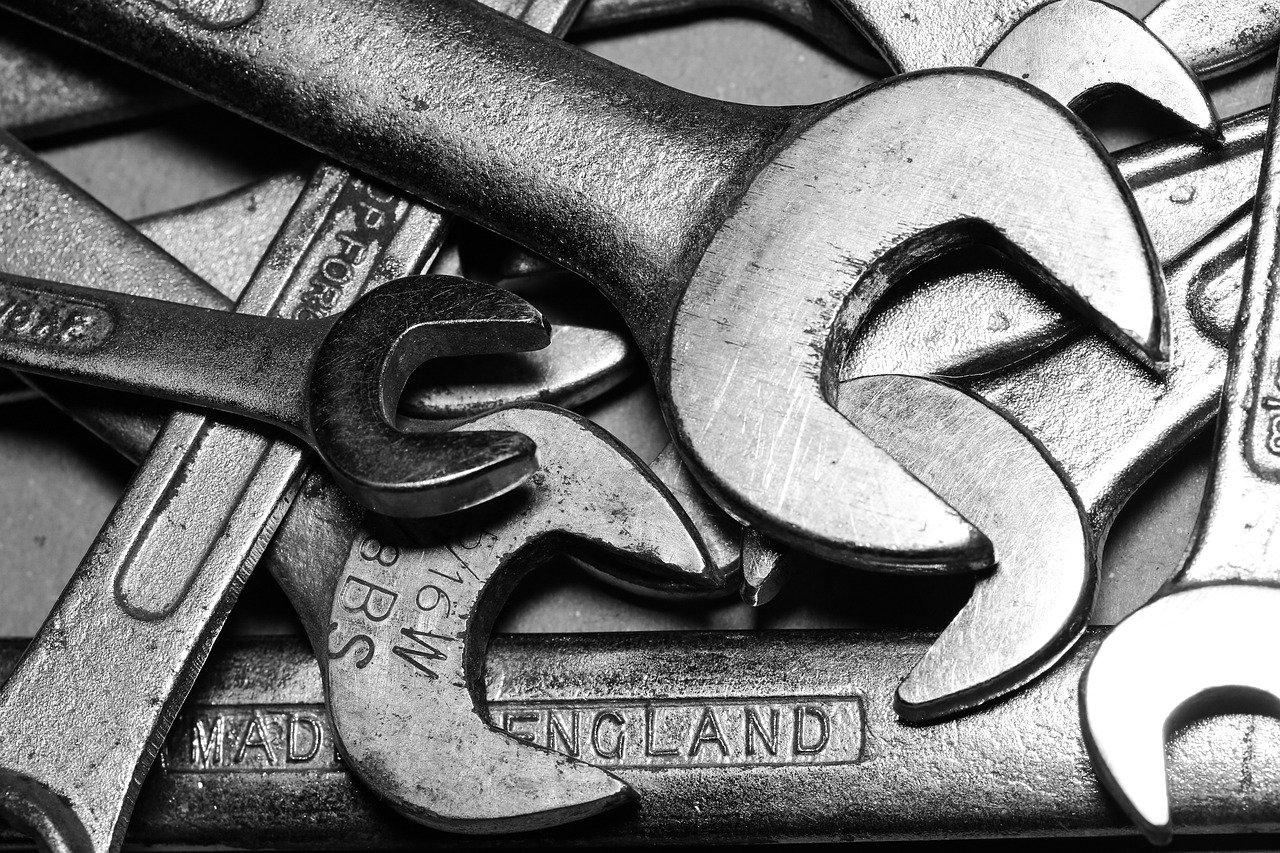The Honda Accord is renowned for its durability and reliability, often leading to questions about its potential lifespan. Understanding how many miles a Honda Accord can last involves examining various factors, including maintenance practices, driving habits, and environmental influences. This article aims to provide a comprehensive overview of the longevity of the Honda Accord, equipping current and prospective owners with valuable insights.
Generally, the average lifespan of a Honda Accord can range from 200,000 to 300,000 miles. This impressive mileage is achievable with proper care and regular maintenance. Many owners have reported reaching these milestones, highlighting the Accord’s reputation as a long-lasting vehicle.
Regular maintenance is essential for maximizing the lifespan of any vehicle, and the Honda Accord is no exception. Key maintenance practices include:
- Routine oil changes to keep the engine lubricated.
- Tire rotations to ensure even wear and prolong tire life.
- Brake inspections to maintain safety and performance.
Following the manufacturer’s recommended maintenance schedule can prevent major issues and enhance the vehicle’s longevity.
Honda recommends servicing your Accord every 7,500 miles or every six months, whichever comes first. Regular servicing helps identify potential problems early, ensuring that the vehicle remains in optimal condition.
Your driving habits significantly impact the lifespan of your Honda Accord. Gentle driving, such as avoiding rapid acceleration and adhering to speed limits, can enhance longevity. Here are some best driving practices:
- Smooth acceleration to reduce strain on the engine.
- Moderate speeds to avoid excessive wear.
- Avoiding heavy loads to minimize stress on the suspension and drivetrain.
City driving, characterized by frequent stops and starts, can wear down components faster than highway driving. Understanding these differences can help owners adapt their maintenance strategies accordingly, ensuring their vehicle can withstand varying driving conditions.
Environmental factors such as climate, road conditions, and exposure to salt can affect the longevity of a Honda Accord. Owners should consider these elements to take preventive measures. For instance:
- Extreme temperatures can impact battery life and fluid levels.
- Road conditions can lead to premature wear on tires and suspension components.
Extreme weather conditions can affect various aspects of your vehicle. Owners in colder climates may need to pay extra attention to battery maintenance, while those in warmer areas should monitor engine cooling systems closely.
To protect your vehicle from environmental damage, consider the following:
- Regular washing to remove dirt and salt.
- Applying wax to protect the paint.
- Using rust-proofing treatments to safeguard against corrosion.
Owner testimonials are invaluable in understanding real-world experiences with the Honda Accord’s lifespan. Many owners report achieving high mileage with proper care and maintenance, often sharing their success stories in online forums and communities.
While the Honda Accord is generally reliable, some common issues reported by owners include transmission problems and electrical system failures. Being aware of these potential issues can help owners take proactive measures to address them.
While manufacturers often state a vehicle’s potential lifespan, real-world experiences can vary. Analyzing owner feedback can provide a more accurate picture of the Honda Accord’s longevity, reinforcing the importance of maintenance and care.

What is the Average Lifespan of a Honda Accord?
The Honda Accord is renowned for its reliability and longevity, making it a popular choice among car enthusiasts and everyday drivers alike. When contemplating the lifespan of a Honda Accord, it is crucial to understand the factors that contribute to its durability. This article delves into the average lifespan of a Honda Accord, which typically falls between 200,000 to 300,000 miles, depending on various aspects such as maintenance, driving conditions, and environmental influences.
Several factors play a significant role in determining how long a Honda Accord can last. These include:
- Maintenance: Regular upkeep is essential for extending the life of any vehicle. Adhering to the manufacturer’s maintenance schedule can prevent small issues from escalating into major problems.
- Driving Conditions: The type of roads you frequently drive on can impact wear and tear. City driving, with its stop-and-go traffic, can be harsher on the vehicle than highway driving.
- Driving Habits: Gentle acceleration and braking can significantly reduce stress on the engine and transmission, promoting longevity.
- Environmental Factors: Harsh climates, exposure to salt, and poor road conditions can accelerate deterioration.
Regular maintenance is crucial for extending the life of any vehicle, including the Honda Accord. Routine tasks such as:
- Oil Changes: Changing the oil every 7,500 miles helps keep the engine running smoothly.
- Tire Rotations: Regular rotations and alignments can prevent uneven tire wear.
- Brake Inspections: Keeping brakes in check ensures safety and prevents further damage.
Following these maintenance practices can help owners maximize their vehicle’s lifespan and performance.
Your driving habits significantly influence the lifespan of a Honda Accord. For instance:
- Gentle Driving: Smooth acceleration and braking can reduce wear on the engine and transmission.
- Avoiding Rapid Acceleration: This can prevent unnecessary strain on the vehicle.
- Adhering to Speed Limits: This not only ensures safety but also promotes fuel efficiency.
By adopting these best practices, drivers can enhance their Honda Accord’s longevity.
Environmental conditions can have a profound effect on the longevity of your Honda Accord. For example:
- Climate: Extreme temperatures can affect battery life and engine performance.
- Road Conditions: Poorly maintained roads can lead to increased wear on tires and suspension components.
- Exposure to Salt: Living in coastal areas where salt is prevalent can lead to rust and corrosion.
Understanding these environmental factors allows owners to take proactive steps to protect their vehicles.
Owner testimonials provide valuable insights into the real-world experiences of Honda Accord longevity. Many owners report achieving high mileage with proper care and maintenance. However, they also mention common issues such as:
- Transmission Problems: Some owners have reported issues with transmission performance, particularly in older models.
- Electrical System Failures: These can arise over time and may require attention to maintain vehicle functionality.
By being aware of these potential issues, owners can take proactive measures to address them, ensuring their Honda Accord remains reliable for years to come.
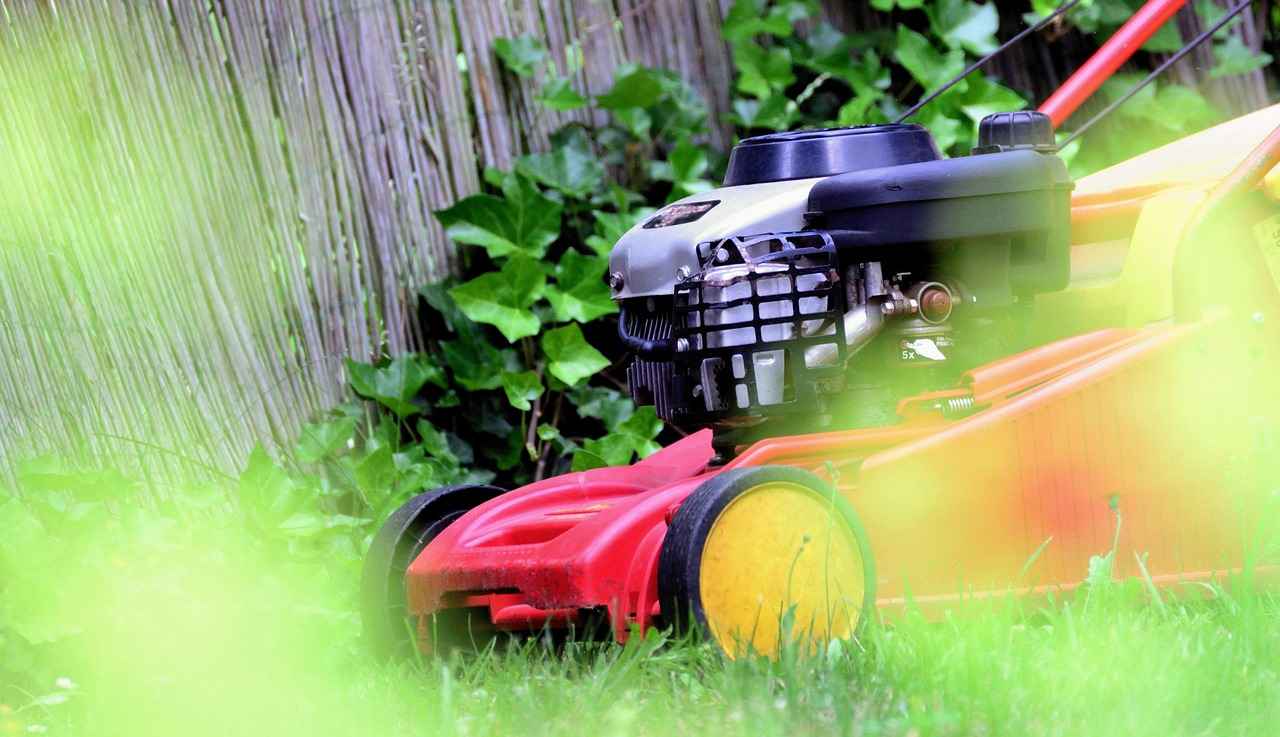
How Maintenance Affects Honda Accord Longevity?
Regular maintenance is essential for maximizing the lifespan of any vehicle, including the Honda Accord. By adhering to a consistent maintenance schedule, owners can significantly enhance their car’s performance and longevity. This article delves into the various aspects of vehicle maintenance that are particularly important for Honda Accord owners.
Why Are Routine Oil Changes Important?
One of the most critical maintenance tasks is performing routine oil changes. Engine oil lubricates the engine’s moving parts, reducing friction and preventing overheating. Over time, oil can become contaminated with dirt and debris, which can lead to engine wear. Honda recommends changing the oil every 7,500 miles or six months, whichever comes first. This practice not only ensures smooth engine operation but also extends the vehicle’s overall life.
How Do Tire Rotations Contribute to Longevity?
Tire rotations are another vital aspect of maintenance. Tires wear unevenly based on driving habits and road conditions. Regularly rotating the tires helps distribute wear more evenly, enhancing traction, fuel efficiency, and safety. Honda suggests rotating tires every 5,000 to 7,500 miles. This simple step can prevent premature tire replacement and improve the vehicle’s handling.
What Role Do Brake Checks Play?
Brakes are a crucial safety component of any vehicle. Regular brake checks ensure that the braking system functions optimally, preventing potential accidents. Worn brake pads can lead to decreased braking efficiency and damage to other brake components. Honda recommends having brakes inspected at least once a year or if you notice any unusual noises or reduced braking performance. Properly maintained brakes not only ensure safety but also contribute to the vehicle’s longevity.
What Are Other Essential Maintenance Practices?
- Fluid Checks: Regularly checking and replacing fluids such as coolant, transmission fluid, and brake fluid is essential for optimal performance.
- Battery Maintenance: Keeping the battery terminals clean and ensuring the battery is in good condition can prevent electrical issues.
- Filter Replacements: Replacing air and fuel filters as recommended can improve engine efficiency and performance.
How Does Following the Manufacturer’s Schedule Help?
Following the manufacturer’s recommended maintenance schedule is vital. This schedule is designed based on extensive testing and provides guidelines on when to perform specific maintenance tasks. Adhering to this schedule can help prevent major issues and ensure that the vehicle remains in excellent condition throughout its lifespan.
What Are the Benefits of Preventive Maintenance?
Preventive maintenance not only prolongs the life of the Honda Accord but also enhances its resale value. A well-maintained vehicle is more attractive to potential buyers. Furthermore, it can lead to fewer unexpected repairs, saving owners both time and money in the long run.
How Can Owners Stay on Top of Maintenance?
Owners can stay organized by keeping a maintenance log that tracks service dates and mileage. Additionally, utilizing mobile apps or reminders can help ensure that no maintenance task is overlooked. By being proactive and attentive to their vehicle’s needs, owners can significantly enhance the longevity of their Honda Accord.
What Are Essential Maintenance Practices?
When it comes to ensuring the longevity and reliability of your Honda Accord, essential maintenance practices are pivotal. Regular upkeep not only enhances performance but also significantly extends the lifespan of the vehicle. Here, we delve into the core maintenance practices that every Accord owner should prioritize.
One of the most critical aspects of vehicle maintenance is changing the oil at regular intervals. Engine oil lubricates moving parts, reduces friction, and helps in cooling the engine. Honda recommends changing the oil every 7,500 miles or every six months, whichever comes first. Neglecting this essential task can lead to engine wear, reduced fuel efficiency, and, ultimately, costly repairs.
Conducting regular inspections is vital for identifying potential issues before they escalate. This includes checking fluid levels, brakes, tires, and belts. A thorough inspection every few months can help catch problems early, ensuring your Accord remains in top condition. Many owners have found that consistent inspections can prevent minor issues from developing into major repairs.
As vehicles age, parts naturally wear out. Replacing worn-out parts such as brake pads, tires, and air filters is essential for maintaining performance and safety. For instance, worn brake pads can compromise stopping power, while old tires can affect traction and handling. Keeping a close eye on these components and replacing them as needed can enhance both safety and longevity.
Every Honda Accord comes with a manufacturer’s maintenance schedule that outlines necessary services and their frequency. Adhering to this schedule is crucial for preventing major issues down the line. This proactive approach not only helps in maintaining the vehicle’s performance but also ensures that it retains its value over time.
Tires are the only contact your vehicle has with the road, making their maintenance essential. Regularly rotating tires and checking tire pressure can prevent uneven wear and extend their lifespan. Additionally, keeping tires properly inflated enhances fuel efficiency and improves handling.
Beyond oil, there are several other fluids that require attention, including coolant, transmission fluid, and brake fluid. Regularly checking and replacing these fluids as needed can prevent overheating, ensure smooth shifting, and maintain braking efficiency. A well-maintained fluid system is crucial for the overall health of your Honda Accord.
While many maintenance tasks can be performed by owners, utilizing professional services for complex repairs or inspections can be beneficial. Trained technicians can provide insights and expertise that may not be apparent to the average owner. Regular visits to a trusted mechanic can ensure that your vehicle receives the care it deserves.
Many Honda Accord owners emphasize the importance of adhering to these maintenance practices. Their testimonials often highlight how regular upkeep has allowed them to enjoy their vehicles for well over 200,000 miles. Engaging with fellow owners can provide valuable tips and insights that further enhance your maintenance routine.
In conclusion, following these essential maintenance practices is key to maximizing the lifespan of your Honda Accord. By prioritizing timely oil changes, regular inspections, and adhering to the manufacturer’s maintenance schedule, you can ensure that your vehicle remains reliable and efficient for years to come.
How Often Should You Service Your Honda Accord?
When it comes to maintaining your Honda Accord, understanding how often to service your vehicle is crucial for its longevity and performance. Regular servicing not only keeps your car running smoothly but also ensures that potential issues are identified before they become significant problems.
Honda recommends servicing your Accord every 7,500 miles or every six months, whichever comes first. This recommendation is based on extensive research and testing, ensuring that your vehicle remains in optimal condition. Regular service helps you:
- Identify Potential Problems Early: Routine checks can uncover issues like oil leaks, worn-out brakes, or tire problems before they escalate.
- Enhance Vehicle Performance: Keeping up with maintenance ensures that your Accord runs efficiently, providing better fuel economy and a smoother ride.
- Maintain Resale Value: A well-maintained vehicle holds its value better than one that has been neglected.
During your service appointment, several critical tasks will typically be performed:
- Oil Change: Replacing old oil with fresh oil is essential for engine health.
- Filter Replacements: Air and oil filters are checked and replaced as needed to ensure clean airflow and lubrication.
- Tire Rotation and Alignment: This helps to ensure even tire wear and improves handling.
- Brake Inspection: Checking brake pads and rotors for wear is crucial for safety.
Neglecting regular service can lead to several issues:
- Increased Repair Costs: Minor issues can turn into major repairs if not addressed promptly.
- Decreased Reliability: A lack of maintenance can lead to unexpected breakdowns.
- Shortened Lifespan: Regular servicing is essential to extend the life of your Honda Accord.
To ensure that you never miss a service appointment, consider the following tips:
- Use a Maintenance Log: Keep a record of service dates and what was performed.
- Set Reminders: Use your smartphone or calendar apps to set alerts for upcoming services.
- Follow the Owner’s Manual: Refer to your manual for specific service intervals and recommendations.
In summary, adhering to Honda’s recommended service schedule is vital for maintaining your Accord’s performance and longevity. By scheduling regular maintenance every 7,500 miles or six months, you can ensure that your vehicle remains in excellent condition, providing you with reliable transportation for years to come.

What Role Does Driving Habits Play?
The way you drive your Honda Accord can significantly impact its overall lifespan. Understanding the relationship between driving habits and vehicle longevity is crucial for any owner looking to maximize the performance and durability of their car.
Driving habits are a key factor in determining how long your Honda Accord will last. Gentle driving practices, such as avoiding rapid acceleration and sudden braking, can greatly enhance the vehicle’s durability. By adopting a more mindful approach to driving, you can minimize wear and tear on critical components.
Engaging in smooth and gradual acceleration not only improves fuel efficiency but also reduces stress on the engine and transmission. Rapid acceleration puts additional strain on these systems, leading to premature wear. Similarly, maintaining a steady speed can help in preserving the integrity of various components.
Adhering to speed limits is not just a matter of safety; it’s also beneficial for your Honda Accord’s longevity. Driving at high speeds can cause excessive engine strain and increase the likelihood of overheating. By following speed regulations, you can ensure that your vehicle operates within its optimal range, thereby prolonging its life.
City driving often involves frequent stopping and starting, which can be harsh on your vehicle. The constant acceleration and deceleration can lead to increased wear on the brakes and transmission. In contrast, highway driving typically allows for more consistent speeds, which is easier on the car. Owners should consider these differences when planning their driving routes and maintenance schedules.
- Avoid Heavy Loads: Carrying excessive weight can strain the suspension and engine, leading to faster deterioration.
- Limit Short Trips: Short, frequent trips can prevent the engine from reaching optimal operating temperature, which can lead to buildup of contaminants.
- Refrain from Aggressive Driving: Sudden stops and rapid accelerations can lead to premature wear on brakes and tires.
One effective way to improve your driving habits is to use driving apps or onboard diagnostics that track your driving patterns. These tools can provide insights into your acceleration, braking, and overall driving style, allowing you to make adjustments that benefit the longevity of your Honda Accord.
To ensure that your Honda Accord lasts as long as possible, consider adopting the following best practices:
- Practice Defensive Driving: Being aware of your surroundings can help you avoid sudden maneuvers that can stress your vehicle.
- Plan Routes Wisely: Opt for routes that minimize stop-and-go traffic.
- Regularly Check Tire Pressure: Properly inflated tires can improve fuel efficiency and handling.
In summary, your driving habits play a pivotal role in the longevity of your Honda Accord. By practicing gentle driving, adhering to speed limits, and avoiding aggressive maneuvers, you can significantly enhance the lifespan of your vehicle. Taking these steps not only benefits your car but also contributes to a safer driving experience.
How Does City vs. Highway Driving Impact Longevity?
When it comes to the longevity of your Honda Accord, understanding the impact of driving conditions is crucial. One of the most significant factors influencing vehicle wear and tear is whether you primarily drive in the city or on the highway. This article delves into the differences between city and highway driving and how they can affect the lifespan of your Honda Accord.
City driving typically involves frequent stops, starts, and lower speeds. This driving style can put more stress on your vehicle’s components, particularly the brakes and transmission. In contrast, highway driving allows for smoother acceleration and consistent speeds, which can be easier on the engine and other parts.
In urban environments, the constant need to stop at traffic lights, navigate through congested areas, and make frequent turns can lead to increased wear and tear on various parts of your Honda Accord. Here are some key components that are affected:
- Brakes: Frequent stopping increases brake pad wear, leading to more frequent replacements.
- Transmission: Stop-and-go traffic can cause the transmission to overheat, leading to potential issues over time.
- Engine: Idling in traffic can lead to inefficient fuel use and increased engine wear.
Understanding the unique challenges of city driving allows Honda Accord owners to tailor their maintenance strategies effectively. Here are some tips:
| Maintenance Task | Frequency | Reason |
|---|---|---|
| Brake Inspection | Every 10,000 miles | Frequent stops increase brake wear. |
| Transmission Fluid Change | Every 30,000 miles | Stop-and-go traffic can cause overheating. |
| Oil Change | Every 5,000 miles | Short trips can lead to oil contamination. |
Highway driving is generally more beneficial for the longevity of your Honda Accord. Here are some advantages:
- Consistent Speed: Maintaining a steady speed reduces engine strain and improves fuel efficiency.
- Less Frequent Stops: Fewer stops mean less wear on brakes and other components.
- Better Cooling: Continuous airflow helps keep the engine cool, reducing the risk of overheating.
For those who primarily drive in the city, adopting certain best practices can help mitigate the wear and tear on your Honda Accord:
- Plan Your Routes: Avoid congested areas and peak traffic times to reduce stop-and-go driving.
- Use Engine Braking: Instead of relying solely on brakes, use engine braking to slow down when possible.
- Regular Maintenance: Stick to a strict maintenance schedule to catch potential issues early.
By understanding the differences between city and highway driving, Honda Accord owners can make informed decisions about their driving habits and maintenance routines. This knowledge is essential for maximizing the vehicle’s lifespan and ensuring a smooth driving experience.
What Are the Best Driving Practices for Longevity?
Driving habits play a critical role in determining the longevity of your vehicle, particularly for models like the Honda Accord. By adopting best driving practices, you can significantly enhance the lifespan of your car while also improving its performance and efficiency. Below are some key driving habits that can help you achieve this goal.
One of the most effective ways to prolong your vehicle’s life is to practice smooth acceleration. Rapid starts can put unnecessary stress on the engine and transmission, leading to premature wear. Instead, gradually increasing speed allows the engine to operate within its optimal range, reducing strain and enhancing fuel efficiency.
Driving at moderate speeds is essential for maintaining the health of your Honda Accord. Excessive speed not only increases the risk of accidents but also puts additional strain on the engine, brakes, and tires. By adhering to speed limits, you can ensure that your vehicle operates efficiently, leading to better fuel economy and reduced wear on critical components.
Carrying heavy loads can significantly affect your vehicle’s performance and longevity. When your Honda Accord is loaded beyond its recommended capacity, it can lead to increased wear on the suspension system, tires, and brakes. This added strain can result in costly repairs and a shorter lifespan for your vehicle. Always refer to the manufacturer’s guidelines regarding load capacity to maintain optimal performance.
Consistency in driving habits is equally important. Frequent changes in driving style, such as alternating between aggressive driving and gentle cruising, can confuse the vehicle’s systems and lead to uneven wear. Maintaining a steady driving style not only enhances comfort but also promotes even wear across all components, contributing to a longer lifespan.
Defensive driving involves being aware of your surroundings and anticipating potential hazards. This practice not only improves safety but also minimizes the likelihood of sudden stops and hard braking, which can wear down your brakes and suspension. By staying alert and driving defensively, you can extend the life of your Honda Accord while keeping yourself and others safe on the road.
Regular driving helps keep your vehicle’s systems functioning properly. Short trips can lead to incomplete engine warm-up cycles, which may result in increased wear over time. Aim for longer drives when possible, as they allow the engine to reach its optimal operating temperature, promoting better efficiency and reducing the buildup of harmful deposits.
Weather conditions can also impact driving habits. In adverse weather, such as rain or snow, it’s crucial to adjust your speed and driving style accordingly. Slower speeds and gentle maneuvers will help maintain control and reduce the risk of accidents, thereby extending the life of your vehicle.
In conclusion, adopting these best driving practices can significantly enhance the longevity of your Honda Accord. By focusing on smooth acceleration, moderate speeds, avoiding heavy loads, and consistent driving habits, you can ensure that your vehicle remains reliable for years to come.

How Do Environmental Factors Influence Lifespan?
The longevity of a Honda Accord is not solely determined by its engineering but is significantly influenced by various environmental factors. Understanding how these elements interact with your vehicle can empower owners to make informed decisions that enhance their Accord’s lifespan.
Climate plays a pivotal role in the wear and tear of vehicles. Extreme temperatures, whether hot or cold, can impact engine performance, battery life, and fluid viscosity. For instance, in very hot climates, engine oil may break down faster, necessitating more frequent changes. Conversely, cold weather can lead to battery failures and sluggish engine performance. Owners in areas with extreme conditions should consider additional maintenance, such as:
- Using synthetic oil for better performance in varying temperatures.
- Regularly checking battery health, especially before winter.
- Monitoring coolant levels to prevent overheating during summer months.
Road conditions can significantly affect the longevity of your Honda Accord. Rough, unpaved roads can lead to increased wear on tires and suspension systems. In contrast, well-maintained highways can provide a smoother driving experience, reducing stress on the vehicle. Consider the following:
- Frequent driving on rough roads may necessitate more regular inspections of suspension components.
- Driving on smooth highways can enhance fuel efficiency and reduce engine strain.
For those living in coastal areas or regions where roads are salted during winter, exposure to salt can be detrimental to your vehicle. Salt can cause rust and corrosion, particularly in the undercarriage and brake lines. To mitigate these effects, owners should:
- Wash their vehicle regularly, particularly during winter months.
- Apply rust-proofing treatments to vulnerable areas.
- Inspect for signs of rust and address them promptly.
Understanding the environmental factors that affect your Honda Accord allows for proactive measures to enhance its longevity. Here are some effective strategies:
- Regular maintenance checks tailored to your local climate and road conditions.
- Using protective coatings and wax to shield the exterior from environmental damage.
- Storing your vehicle in a garage or covered area to protect it from the elements.
Keeping track of how environmental factors influence your vehicle can help you make timely decisions regarding maintenance. Consider implementing a monitoring system that includes:
- Keeping a maintenance log to track services performed and any environmental conditions experienced.
- Using apps or tools that provide reminders for regular maintenance based on mileage and conditions.
In conclusion, being aware of the environmental factors that can affect your Honda Accord’s lifespan is crucial. By taking preventive measures and adapting maintenance practices to suit your driving environment, you can significantly enhance the longevity and performance of your vehicle. Understanding these influences not only helps in preserving your investment but also ensures a safer and more reliable driving experience.
What Impact Does Climate Have on Your Honda Accord?
When it comes to maintaining your Honda Accord, one of the most significant factors to consider is the impact of climate on your vehicle’s performance and longevity. Understanding how extreme temperatures can influence various aspects of your car is essential for ensuring its durability and reliability.
Extreme weather conditions can have profound effects on your Honda Accord, particularly in the following areas:
- Battery Life: Cold temperatures can reduce battery efficiency, making it harder for your vehicle to start. In contrast, excessive heat can cause the battery fluid to evaporate, leading to potential damage.
- Engine Performance: High temperatures can lead to overheating, which can strain your engine and affect its overall performance. Conversely, cold weather can thicken engine oil, making it less effective in lubricating engine components.
- Fluid Levels: Fluids such as coolant and oil can be affected by extreme temperatures. In colder climates, fluids may become more viscous, while in hotter conditions, they may thin out, both of which can impact vehicle performance.
Understanding your local climate is crucial for maintaining your Honda Accord effectively. Owners should consider the following:
- Additional Maintenance Needs: Depending on the climate, you may need to adjust your maintenance schedule. For instance, if you live in a region with harsh winters, regular battery checks and antifreeze levels should be prioritized.
- Seasonal Preparations: Preparing your vehicle for seasonal changes can help prevent issues. This might include switching to winter tires or ensuring your cooling system is functioning correctly before the summer heat.
- Environmental Exposure: Vehicles in coastal areas may face corrosion from salt in the air, while those in desert regions may suffer from sun damage. Regular washing and protective treatments can mitigate these effects.
To protect your Honda Accord from the adverse effects of climate, consider implementing the following maintenance practices:
- Regular Inspections: Schedule routine inspections to check fluid levels, battery health, and overall engine performance.
- Use Quality Fluids: Invest in high-quality engine oil and coolant that can withstand extreme temperatures, ensuring optimal performance under varying conditions.
- Protective Measures: Apply protective coatings and rust-proofing treatments, especially if you live in an area with harsh environmental factors.
In summary, being proactive about how climate affects your Honda Accord is vital for ensuring its longevity and performance. By understanding the implications of extreme temperatures and adjusting your maintenance practices accordingly, you can keep your vehicle in excellent condition for many miles to come.
How Can You Protect Your Honda Accord from Environmental Damage?
Protecting your vehicle, particularly a Honda Accord, is essential to ensure its longevity and performance. Environmental factors such as harsh weather conditions, road salt, and pollution can significantly impact your car’s exterior and internal components. Understanding how to shield your vehicle from these elements is crucial for every owner.
Regular washing is one of the simplest yet most effective ways to protect your Honda Accord. Dust, dirt, and grime can accumulate on the surface, leading to scratches and paint damage over time. Additionally, road salt used in winter can cause corrosion if not removed promptly. Aim to wash your vehicle at least once every two weeks, and more frequently during winter months.
Applying a good quality wax to your Honda Accord not only enhances its appearance but also adds a protective layer against environmental damage. Wax acts as a barrier against harmful UV rays and pollutants. It’s advisable to wax your vehicle every three months to maintain this protective shield. This practice helps to keep the paint looking fresh and vibrant while preventing oxidation.
Rust-proofing treatments are highly recommended, especially for those living in regions with heavy snowfall and road salt usage. These treatments can significantly extend the life of your vehicle’s undercarriage and body. Professional rust-proofing services often apply a protective coating that repels moisture and prevents rust from forming. Consider investing in this treatment every few years for optimal protection.
Extreme weather conditions can pose a threat to your Honda Accord. Heat can cause the interior materials to fade and the battery to degrade, while cold can affect fluid levels and battery performance. During summer, consider using a sunshade to protect the dashboard and seats from UV damage. In winter, ensure your vehicle is parked in a garage or use a car cover to shield it from snow and ice.
Investing in high-quality cleaning and maintenance products is essential. Look for pH-balanced car shampoos, premium waxes, and effective rust-proofing solutions. Using subpar products can lead to more harm than good, potentially damaging the paint or failing to provide adequate protection. Always read reviews and choose products that are well-regarded in the automotive community.
Conducting regular inspections of your Honda Accord can help identify potential issues before they escalate. Check for any signs of rust, paint chips, or scratches that may need immediate attention. Additionally, inspect the undercarriage for signs of corrosion, especially after winter. Catching these problems early can save you from costly repairs down the line.
Many Honda Accord owners emphasize the importance of protective measures against environmental damage. Testimonials often highlight the benefits of regular washing and waxing. Owners who have invested in rust-proofing treatments report fewer issues with corrosion and longer-lasting vehicles. Learning from their experiences can guide new owners in making informed decisions about vehicle care.
In summary, protecting your Honda Accord from environmental damage involves a combination of regular washing, applying wax, using rust-proofing treatments, and conducting routine inspections. By adopting these practices, you can significantly enhance the longevity and performance of your vehicle, ensuring it remains a reliable companion for years to come.
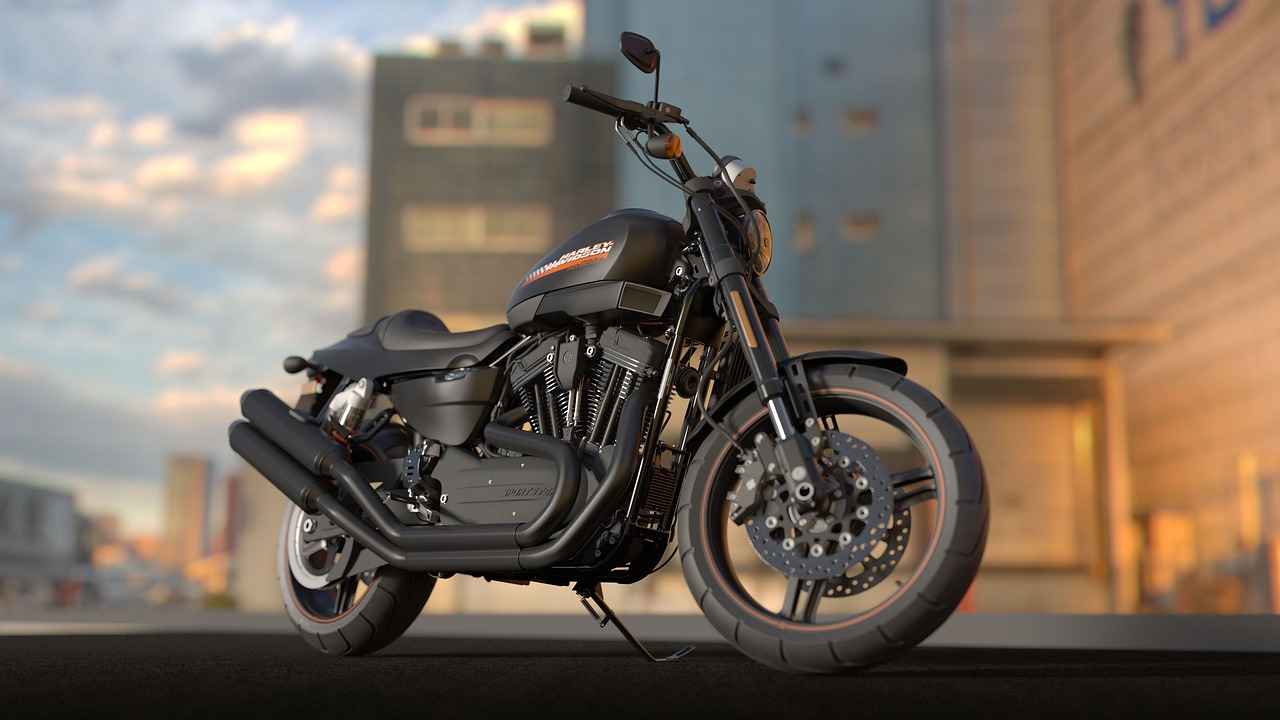
What Do Honda Accord Owners Say About Longevity?
Owner testimonials are an invaluable resource when it comes to understanding the longevity of the Honda Accord. Many drivers have shared their experiences, highlighting how the vehicle can last well beyond the average lifespan with the right care. Numerous owners report achieving impressive mileage, often exceeding 200,000 miles, and some even reaching 300,000 miles or more. These real-world stories provide a glimpse into how diligent maintenance and responsible driving can significantly impact the vehicle’s lifespan.
How Does Maintenance Influence Owner Experiences?
Many Honda Accord owners emphasize the importance of regular maintenance. For instance, one owner noted that by adhering strictly to the manufacturer’s recommended service schedule, they were able to keep their Accord running smoothly for over 250,000 miles. Simple practices like timely oil changes, fluid checks, and tire rotations are frequently mentioned as crucial steps in prolonging the vehicle’s life.
What Are the Most Common Owner Testimonials?
- High Mileage Achievements: A significant number of owners report reaching high mileage milestones, often attributing their success to routine maintenance and cautious driving habits.
- Durability and Reliability: Many testimonials highlight the Accord’s reputation for durability, with owners expressing satisfaction with how well the vehicle holds up over time.
- Low Repair Costs: Owners frequently mention that the Accord is relatively inexpensive to maintain, which contributes to their overall satisfaction and encourages them to keep the vehicle longer.
What Common Issues Do Owners Encounter?
Despite the Honda Accord’s strong reputation, some owners have reported issues that can arise as the vehicle ages. Common problems include:
- Transmission Concerns: A few owners have experienced transmission issues, particularly in vehicles that have not received regular maintenance.
- Electrical Problems: Some drivers have noted electrical system failures, which can arise as the vehicle ages.
Being aware of these potential issues allows owners to take proactive measures, such as regular inspections, to mitigate risks.
How Do Owner Experiences Compare to Manufacturer Claims?
While manufacturers often provide estimates regarding the lifespan of their vehicles, real-world experiences can vary significantly. Many owners feel that their Honda Accord has outperformed these claims, thanks to careful maintenance and responsible driving. For example, one owner shared that their Accord surpassed 300,000 miles without any major issues, which significantly exceeded the manufacturer’s projected lifespan.
Ultimately, the consensus among Honda Accord owners is that with proper care and attention, the vehicle can provide many years of reliable service. This feedback not only reinforces the vehicle’s reputation for longevity but also encourages new owners to invest in regular maintenance and adopt good driving habits.
What Are Common Issues Reported by Owners?
The Honda Accord is a well-regarded vehicle known for its reliability and longevity. However, like any car, it can experience issues as it ages. Understanding these common problems can help owners be proactive in their maintenance and care. Below, we explore some of the most frequently reported issues by Honda Accord owners, along with insights on how to address them.
Many Honda Accord owners have shared their experiences regarding various issues that can arise over time. The most frequently reported problems include:
- Transmission Problems: One of the most concerning issues reported is related to the transmission. Symptoms may include slipping gears, difficulty shifting, or unusual noises. Regular maintenance, such as fluid changes, can help mitigate these problems.
- Electrical System Failures: Owners have noted problems with the electrical system, including malfunctioning power windows, faulty dashboard lights, and issues with the battery. Keeping an eye on electrical components and addressing any warning signs early can prevent more significant failures.
- Brake Wear: Some owners have experienced premature brake wear, which can lead to decreased performance and safety concerns. Regular inspections and timely replacements are crucial for maintaining braking efficiency.
- Suspension Issues: Over time, components like struts and shocks may wear out, leading to a rough ride and handling difficulties. Routine checks can help identify these issues before they escalate.
- Oil Consumption: A few owners have reported higher-than-normal oil consumption, which can indicate underlying engine problems. Monitoring oil levels and addressing leaks promptly is essential.
Awareness of these potential issues can help owners take proactive measures to address them. Here are some strategies:
- Regular Maintenance: Adhering to the manufacturer’s recommended maintenance schedule is vital. This includes oil changes, fluid checks, and brake inspections.
- Monitoring Performance: Keeping track of how the vehicle performs can help catch issues early. Unusual sounds or changes in handling should prompt an immediate inspection.
- Consulting Professionals: When in doubt, seeking advice from a qualified mechanic can provide valuable insights and solutions to any concerns.
Honda Accord owners can benefit from various resources to stay informed about common issues:
- Owner Forums: Online communities and forums can provide firsthand accounts and solutions from fellow owners.
- Service Manuals: Accessing a service manual can give detailed information on troubleshooting and maintenance.
- Recall Information: Staying updated on recalls and service bulletins from Honda can help address known issues promptly.
In summary, while the Honda Accord is known for its durability, being aware of common issues such as transmission problems and electrical system failures can empower owners to take preventive measures. By maintaining regular service, monitoring performance, and utilizing available resources, owners can enjoy a long and trouble-free experience with their vehicles.
How Do Owner Experiences Compare to Manufacturer Claims?
The Honda Accord is renowned for its reliability and longevity, but how do real-world experiences align with manufacturer claims? Owner feedback can provide invaluable insights into the actual lifespan of this popular vehicle, often revealing a different story than what is presented in promotional materials.
Manufacturers typically provide an estimated lifespan for their vehicles, often citing figures that can range from 200,000 to 300,000 miles for the Honda Accord. These estimates are based on controlled testing and ideal conditions, which may not reflect the everyday realities faced by drivers. Therefore, while these figures serve as a benchmark, they do not account for the various factors that influence a vehicle’s longevity in the real world.
Analyzing owner experiences can shed light on how the Honda Accord performs over time. Many owners have reported reaching impressive mileage milestones, often exceeding the manufacturer’s estimates. By examining these testimonials, potential buyers can gain a better understanding of what to expect from their vehicle.
- High Mileage Achievements: Numerous owners have shared stories of their Accords surpassing 300,000 miles with diligent maintenance.
- Maintenance Practices: Owners emphasize the importance of regular maintenance, including oil changes and tire rotations, as critical to achieving high mileage.
- Driving Habits: Many report that gentle driving and avoiding harsh conditions contribute significantly to longevity.
While many Honda Accord owners enjoy long-lasting vehicles, some common issues have been reported:
- Transmission Problems: A subset of owners has experienced transmission issues, particularly in older models.
- Electrical Failures: Some owners have noted electrical system failures, which can be costly to repair.
When comparing owner experiences to manufacturer claims, it’s evident that while many Honda Accords can last well beyond 200,000 miles, the reality is that individual experiences can vary widely. Factors such as driving conditions, maintenance habits, and even luck play a significant role in determining a vehicle’s lifespan.
In summary, while manufacturers provide optimistic lifespan estimates for the Honda Accord, real-world experiences can differ. By analyzing owner feedback, prospective buyers can gain a more accurate picture of what to expect in terms of longevity. Regular maintenance, careful driving, and awareness of potential issues can help ensure that the Honda Accord remains a reliable choice for years to come.
Frequently Asked Questions
- How many miles can a Honda Accord last?
The Honda Accord typically lasts between 200,000 to 300,000 miles, depending on how well you maintain it and your driving habits. With proper care, many owners have reported reaching impressive mileages!
- What maintenance is essential for longevity?
Regular oil changes, tire rotations, and brake inspections are crucial. Following the manufacturer’s maintenance schedule helps prevent major issues and keeps your Accord running smoothly for years.
- How do driving habits affect my Accord’s lifespan?
Your driving style plays a big role! Gentle acceleration and avoiding rapid stops can significantly extend your vehicle’s life. Think of it as treating your car like a delicate flower—you want to nurture it!
- Does climate impact my Honda Accord?
Absolutely! Extreme temperatures can affect battery life and engine performance. If you live in a harsh climate, be sure to adjust your maintenance routine to keep your Accord in top shape.
- What do owners say about their Accord’s longevity?
Many owners rave about their Accords lasting well beyond 200,000 miles with proper maintenance. Their experiences often highlight the reliability and durability of this fantastic vehicle!
